CWMFA Featured Graduate Archive
Ayelet Tsabari (2009 cohort)
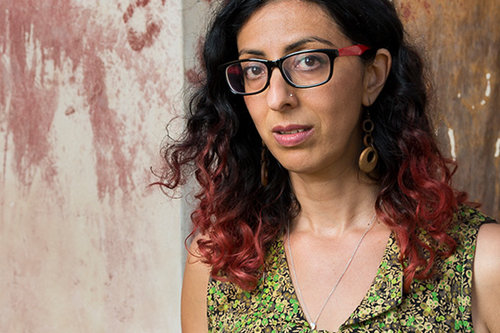 In the winter of 2009 I was in a beach hut in Belize, run by a local named Ignacio who was known to chase trespassers with a machete. One morning I found a Wi-Fi signal for the first time in days and opened my email to find an invitation to attend the University of Guelph Creative Writing MFA. I grabbed my partner’s thigh and dug my fingernails into it, pointing at the screen without speaking.
In the winter of 2009 I was in a beach hut in Belize, run by a local named Ignacio who was known to chase trespassers with a machete. One morning I found a Wi-Fi signal for the first time in days and opened my email to find an invitation to attend the University of Guelph Creative Writing MFA. I grabbed my partner’s thigh and dug my fingernails into it, pointing at the screen without speaking.
Enrolling in an MFA program had been a dream of mine; one I’d thought was beyond reach. I had been taking part-time writing courses for a couple of years and I wanted more. An MFA seemed like a natural choice, an opportunity to immerse myself in my craft, learn from established authors and professionalize my writing. But I was ineligible for most programs: I didn’t have a BA, had never gone to university, and at thirty-six didn’t see an undergrad in my future.
One day, I met my friend Janet for coffee to celebrate her good news: she had been accepted to the new University of Guelph MFA program in Toronto. You should apply too, Janet said. Apparently, she had never completed her BA. Suddenly, a glimmer of hope. When I came home I read about the program and the fantastic writers who taught in it, found that “a limited number of students may be admitted to the MFA without having satisfied the degree requirement…based on other experience and practice.” It seemed too good to be true.
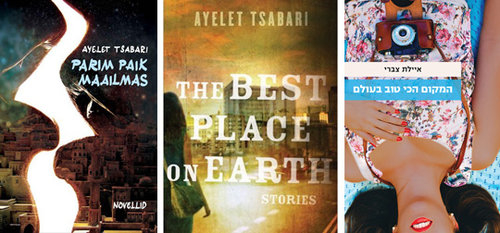 Enrolling in the MFA was everything I wanted. Still, that first semester I was often riddled with anxiety and doubt. Because chasing your dreams and committing to life as a writer is frightening, because I’d only been writing in English for about three years, because as an immigrant and a minority I feared my writing was inherently different, not Canadian enough, because I had been a waitress for thirteen years and was afraid to hope for a different life. And because I had never gone to university and felt intimidated, outside my comfort zone. But of course, being forced outside my comfort zone was exactly what I needed to grow as a writer.
Enrolling in the MFA was everything I wanted. Still, that first semester I was often riddled with anxiety and doubt. Because chasing your dreams and committing to life as a writer is frightening, because I’d only been writing in English for about three years, because as an immigrant and a minority I feared my writing was inherently different, not Canadian enough, because I had been a waitress for thirteen years and was afraid to hope for a different life. And because I had never gone to university and felt intimidated, outside my comfort zone. But of course, being forced outside my comfort zone was exactly what I needed to grow as a writer.
A month after I defended my thesis, a collection of stories titled The Best Place on Earth, I signed a book deal with HarperCollins. The collection was envisioned, created, fostered and edited during my two years in the program. I had initially planned on writing a different book, felt too daunted by the idea of writing about my messed-up homeland, unprepared for the responsibility, despite the strong pull I had felt toward the subject. It was during “Writers in the World,” the plenary course taught by Catherine Bush, that I began to reconsider the way my writing engaged (or rather didn’t engage) with the world. Reading work by authors who wrote bravely about their own messed-up homelands, and participating in the classroom discussions they spurred, inspired me to try. I was fortunate to have Camilla Gibb as a mentor and a thesis advisor. Camilla pushed me to work harder than I had ever worked before—we referred to the mentorship as Fiction Boot Camp—while encouraging me to own my voice. She made me believe there was room for my fiction in the world.
I walked out of the program with another book in the works, a collection of essays I had worked on during the creative non-fiction workshop. I walked out with better job prospects (upon graduating, I got work as a creative writing instructor at two continuing studies programs), and I walked out with a supportive writing community, close friends from my cohort, from other cohorts, and amongst the faculty as well. Six years after graduation, these are the friends I turn to for feedback on my writing, career advice, or for literary hangouts.
Website: www.ayelettsabari.com
Essay: Why I Chose to Write in English, Literary Hub, March 2016
Essay: What Nobody Tells You, The Afterword, The National Post, March 2013
Interview: An Interview with CWILA, February 2014
Audio: Interview with Marrie Stone at Writers on Writing, KUCI-FM, Southern California, April 13, 2016
Video: The Best Place on Earth Book Trailer
Ayelet Tsabari was born in Israel to a large family of Yemeni descent. Her first book, The Best Place on Earth, (HarperCollins) won the Sami Rohr Prize for Jewish Literature and the Edward Lewis Wallant Award, and was long listed to the Frank O’Connor International Short Story Award. The Best Place on Earth was a New York Times Book Review Editors’ Choice, a Kirkus Review best book of 2016, and has been published internationally to great acclaim. Excerpts from her forthcoming book of essays have won a National Magazine Award, a Western Magazine Award, and The New Quarterly ‘s Edna Staebler award. In 2014, she was awarded a Chalmers Arts Fellowship. She is a graduate of the Creative Writing MFA Program at Guelph and lives in Toronto.
[featured: fall 2017]
Sheniz Janmohamed (2006 cohort)
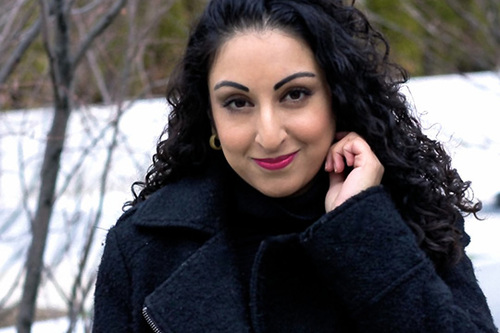 I keep a chunk of quartz on my desk—a reminder to observe from all angles, to deepen, clarify, and sharpen the edges of my words.
I keep a chunk of quartz on my desk—a reminder to observe from all angles, to deepen, clarify, and sharpen the edges of my words.
A few days ago, while I was gazing into my quartz (not writing, of course), I remembered. I remembered David Young telling us that he kept a chunk of amber on his desk to inspire him during the writing process. He encouraged us to keep something magical, weird and unique on our desks.
I’m not sure when I picked up his advice, but there it was—something magical, weird and unique—right in front of me.
On the first day of playwriting class, David lay down on the floor, took off his shoes to reveal multi-coloured striped socks, and read from his play with his feet up in the air. All the stress I felt about writing a play faded away in that moment. He created a safe space by being silly. He created a safe space by inviting us to his home to nibble on expensive crackers and cheese, while he casually introduced us to Bruce MacDonald, Atom Egoyan and other luminaries, who joined us in honing our work. He opened his door and his heart to us—sharing his vulnerabilities, challenges and triumphs as a writer. It was a pivotal class for me because it stripped away at the romanticism of being a writer and gave way for the deeper work of understanding what it takes to work as a writer.
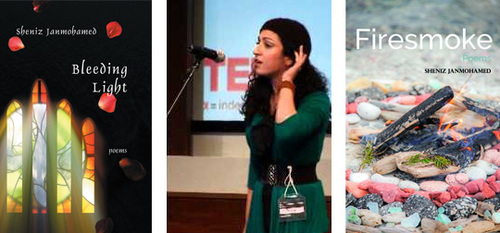 Janice Kulyk Keefer invited us to write and share our stories around hot cups of tea and bowls of fruit. I still remember one frigid day when I walked to class with a very pregnant Soraya Peerbaye next to me, as we chatted about the challenges of writing as women of colour. These bonds of community are still strong.
Janice Kulyk Keefer invited us to write and share our stories around hot cups of tea and bowls of fruit. I still remember one frigid day when I walked to class with a very pregnant Soraya Peerbaye next to me, as we chatted about the challenges of writing as women of colour. These bonds of community are still strong.
Dionne Brand taught us poetry from all traditions, including the ghazal as an English form. My first ghazal was one of the worst pieces of writing I have ever produced. I wish I still had it—I would frame it as a reminder. Despite my atrocious ghazal, Dionne encouraged me to keep writing. I worked at the craft, researched it under the mentorship of the late Kuldip Gill, and produced my first book, Bleeding Light, as a result of my studies in the form. I have built my writing career around the ghazal—both of my poetry books have been written in the ghazal form. I’ve taught the ghazal, performed it, collaborated with musicians because of it. In 2012, I was invited to the Jaipur Literature Festival to speak about writing the ghazal in English. My entire life’s work as been a result of Dionne Brand nudging me to pursue the ghazal. To say I owe her would be an understatement.
The impact of these experiences is undeniable—instead of just reading about writers, I was sitting with them. Talking to them. Breathing the same air. Instead of signing books, they scribbled notes on my crappy poems and condemned my mediocre stories. They shared their lived experiences, tidbits of advice, and living rooms with us. Now, when I step into classrooms, I bring those precious teachings with me. I see my experience through the lens of the mentors who have taught me, and try, in my own way, to give back what they have given me.
Website: www.shenizjanmohamed.com
Audio: Sheniz Janmohamed on Soundcloud
Poetry: The Rusty Toque
Essay: Montreal Serai
Sheniz Janmohamed is an author, artist educator and spoken word artist. She has performed nationally and internationally for over 10 years, including features at the TedXYouth Conference (Toronto, 2010) the Jaipur Literature Festival (Jaipur, 2013) and the Aga Khan Museum (Toronto, 2015). Her first book, Bleeding Light (Mawenzi House, 2010), is a collection of English ghazals that explores a woman’s journey through night. Sheniz’s second collection of poetry, Firesmoke (Mawenzi House, 2014) traces the inception and annihilation of sacred fire and explores the meaning of truth and the self, finding them both in form and emptiness. Sheniz also visits schools through Mariposa in the Schools and the League of Canadian Poets, and has travelled as far as Nairobi, Kenya, to share her poetry with young audiences. She is also a Mentor-Artist with the Royal Conservatory’s Digital Media Arts program.
[featured: spring 2017]
Anna Chatterton (2009 cohort)
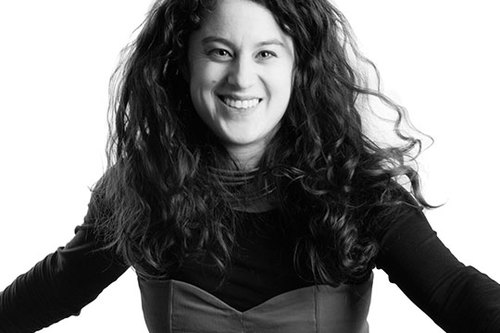 I credit myself as being a “playwright, performer and librettist.” However, before coming to the University of Guelph MFA program, I hadn’t written a play on my own in almost ten years. I'd spent the last decade co-writing and performing five plays with my theatre company (Independent Aunties), writing librettos for opera, and being involved in multidisciplinary creations.
I credit myself as being a “playwright, performer and librettist.” However, before coming to the University of Guelph MFA program, I hadn’t written a play on my own in almost ten years. I'd spent the last decade co-writing and performing five plays with my theatre company (Independent Aunties), writing librettos for opera, and being involved in multidisciplinary creations.
I was quite busy outside of school while doing the MFA. I premiered and performed in two shows and was running the Write from the Hip program for emerging writers at Nightwood Theatre. It was important to me to be able to integrate my school life and my work life in the professional theatre and opera world (and not have to “stop” my career to get my masters). The program is set up to make this possible, and our cohort was a wonderful mix of writers fresh from their undergrads and mid-career writers.
An incredibly valuable aspect of the program for me was the close mentorship of the masterful Colleen Murphy, and my thesis advisor—a longtime hero of mine—Judith Thompson. With these two powerhouse playwrights, I was able to intimately discuss my work and also the business of playwriting. Mentorship is more often thought of when you are an emerging writer, but to have a mentor when you are older is an incredible gift and one that I recommend. I developed two plays during the program, one of which recently premiered at Tarragon Theatre; the other was picked up by another company and will premiere next fall in Toronto.
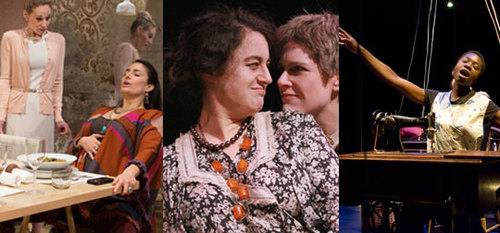 Peers in the program are also a great resource and support. I became close friends with a non-fiction and fiction writer (Ayelet Tsabari, author of The Best Place on Earth) who was incredibly generous with her time and gave me close feedback on all of my prose writing while in the program. I learned so much from her, and I loved our intense discussions about craft. Her perspective was incredibly helpful. Though I haven’t yet gone back to prose writing, which was an entirely new experience for me, I do intend to, and I now feel I have the tools to to explore that path when I have time.
Peers in the program are also a great resource and support. I became close friends with a non-fiction and fiction writer (Ayelet Tsabari, author of The Best Place on Earth) who was incredibly generous with her time and gave me close feedback on all of my prose writing while in the program. I learned so much from her, and I loved our intense discussions about craft. Her perspective was incredibly helpful. Though I haven’t yet gone back to prose writing, which was an entirely new experience for me, I do intend to, and I now feel I have the tools to to explore that path when I have time.
What I really appreciated about the MFA instructors was that they wanted to communicate and share every aspect of what they knew and did with their own writing, which felt like such a generous act. When I think of my time doing my MFA, I think of the generosity of all the writers I met.
Urbanvessel's opera Stitch: text & music
Interview: Hamilton Spectator
Interview: theatromania.ca
Review: Gian Verano for Mooney on Theatre
Anna Chatterton is a playwright, librettist and performer. Her play Within the Glass was recently produced at Tarragon Theatre where she is a playwright in residence. Anna co-writes and performs with the acclaimed theatre collective Independent Aunties. Their sixth play, Gertrude and Alice will be produced with Buddies in Bad Times Theatre in March. As a librettist her work has been produced by Canadian Opera Company (Swoon), World Stage/Harbourfront Centre/Urbanvessel (Voice Box), The Banff Centre (Crush), and Theatre Centre/Urbanvessel (Stitch—Dora award nomination for Best New Opera). Upcoming: Rocking Horse Winner in May (Tapestry Opera), and The Man Who Married Himself (Toronto Masque Theatre). Anna is also the playwright in residence at Nightwood Theatre this season and was recently invited to be a playwright in residence at the National Theatre School of Canada.
[featured: spring 2016]
Andrea Thompson (2010 cohort)
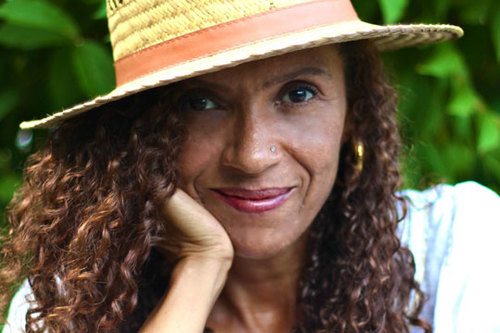 The other day, someone asked me what it was like to go back to university after being a working artist for over two decades. The word that immediately came to mind was: luxury. There was something very luxurious about declaring that for two years I would immerse myself in the study and craft of writing. My reasons for going back to school were also practical—I wanted to get a graduate degree to boost my teaching credentials, and I wanted to learn how to write a novel. I had made an attempt at a novel a few years before, but had become quickly overwhelmed at the size and scope of the project. I knew I’d benefit from the structure and accountability of a writing program, and decided that an MFA would be my best bet.
The other day, someone asked me what it was like to go back to university after being a working artist for over two decades. The word that immediately came to mind was: luxury. There was something very luxurious about declaring that for two years I would immerse myself in the study and craft of writing. My reasons for going back to school were also practical—I wanted to get a graduate degree to boost my teaching credentials, and I wanted to learn how to write a novel. I had made an attempt at a novel a few years before, but had become quickly overwhelmed at the size and scope of the project. I knew I’d benefit from the structure and accountability of a writing program, and decided that an MFA would be my best bet.
Catherine Bush’s plenary turned out to be one of my favorite classes. It caused me to think about the art of writing at a deeper level than I had before, and the essays gave me the opportunity to research and write critically about topics that interested me. In my first year, I studied poetry with Lynn Crosbie, who introduced me to Sonia Sanchez, and sparked my fascination with the relationship between the jazz poets of the Black Arts Movement and the evolution of literary performance in Canada. This led to my writing a paper called “Spoken Word: A Signifying Poetic”, which was revised and presented at the annual Canadian Creative Writers and Writing Programs Conference, and more recently at the South North Griots’ Summit in Toronto. I also took two fiction workshops, which helped me understand the fundamental elements of the form, and during the summer mentorship, I began working on the first draft of my novel with Jeanette Lynes. I was able to complete the novel as my thesis, instructed by Kathryn Kuitenbrauer, who helped me edit and shape my fractured, chaotic first draft into a coherent whole.
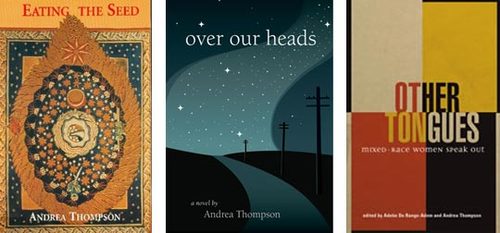 In the end, the experience of working towards a MFA in creative writing was one of the most rewarding journeys of my life. I was not only able to complete and publish my first novel and enrich my spoken word practice, I was also introduced to a new community of colleagues and friends along the way.
In the end, the experience of working towards a MFA in creative writing was one of the most rewarding journeys of my life. I was not only able to complete and publish my first novel and enrich my spoken word practice, I was also introduced to a new community of colleagues and friends along the way.
Website: andreathompson.ca
Interview: Firelight Interview series with Lauren Carter
Profile: Open Book Toronto
Writer and spoken word artist Andrea Thompson has performed her work at venues across North America and overseas for the past twenty years. A pioneer of Slam poetry in Canada, Thompson’s work has been featured on film, radio, and television; and included in magazines, literary journals and anthologies across the country. Thompson’s poetry is hybridist and unique—blending elements of jazz, dub, hip-hop and traditional literary verse. In 2009 she was awarded the Canadian Festival of Spoken Word’s Poet of Honour: For Outstanding Achievement in the Art of Spoken Word, and in 2005, her spoken word CD One, was nominated for a Canadian Urban Music Award. Thompson is the co-editor of the anthology Other Tongues: Mixed Race Women Speak Out (Inanna, 2010), the author of the novel, Over Our Heads (Inanna, 2014) and the poetry collection Eating the Seed (Ekstasis, 2000). Thompson currently teaches Spoken Word through the Ontario College of Art and Design University’s continuing studies department and Creative Writing through Workman Arts.
[featured: fall 2015]
David James Brock (2006 cohort)
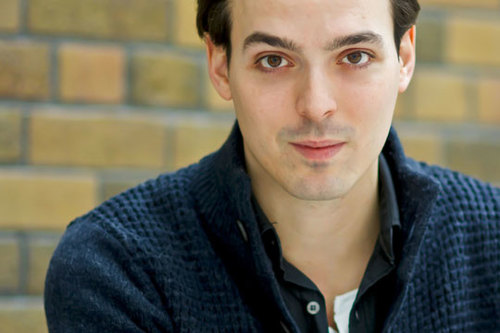 I was finishing an undergrad in creative writing at the University of Victoria in 2005, when a professor of mine, playwright Joan MacLeod, showed me a print out of an email announcing a new creative writing MFA at the University of Guelph. At the time, I was focusing almost exclusively on playwriting, and though I’m paraphrasing, Joan said something like, “a lot of playwrights live in Toronto at some point.” A year later, I was on the other side of the country in the Toronto living room of Connie and Leon Rooke at a meeting for the first 15 Guelph MFA candidates. Instant community.
I was finishing an undergrad in creative writing at the University of Victoria in 2005, when a professor of mine, playwright Joan MacLeod, showed me a print out of an email announcing a new creative writing MFA at the University of Guelph. At the time, I was focusing almost exclusively on playwriting, and though I’m paraphrasing, Joan said something like, “a lot of playwrights live in Toronto at some point.” A year later, I was on the other side of the country in the Toronto living room of Connie and Leon Rooke at a meeting for the first 15 Guelph MFA candidates. Instant community.
Ten years later, the impacts of that community are still with me as both a writer and teacher. My writing focus has broadened to poetry, something that was certainly inspired by the incredible gang of poets who were present in my Guelph MFA community (poets are a contagious bunch), and I started to take a genre other than playwriting seriously. In fact, the high level of thought that permeated the classes, workshops, reading events and social atmosphere connected with the Guelph MFA made me take everything a little bit more seriously.
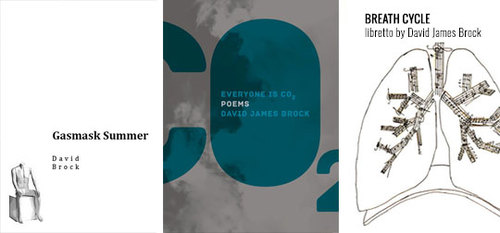 Since graduating (I was the first to defend a thesis, by the way!), in addition to plays and poetry, I have been fortunate enough to travel and work on opera projects around the world. Tracing it back far enough, I can attribute the writing I do now to a draft, an idea, or a person directly connected to my time at Guelph.
Since graduating (I was the first to defend a thesis, by the way!), in addition to plays and poetry, I have been fortunate enough to travel and work on opera projects around the world. Tracing it back far enough, I can attribute the writing I do now to a draft, an idea, or a person directly connected to my time at Guelph.
Picking up and moving across the country for “more school” was a scary prospect. There are always expectations as to what an MFA will bring. Yes, there are the practical aspects: elevation of craft, networking, teaching opportunities, but there are also surprises: the fellow writers that nudged me in new directions, the new little paths that revealed themselves, paths that begged to be taken.
Review: William Kemp on Everyone is CO2
Interview: in The Puritan's Town Crier
Info & recordings: for the Breath Cycle project
David James Brock is a playwright, poet, and librettist whose plays and operas have been performed in cities across Canada, the US, and the UK. He is the winner of the 2011 Herman Voaden Canadian National Playwriting Award. Brock’s debut poetry collection, Everyone is CO2, was released by Wolsak & Wynn in spring 2014. He is co-creator of Breath Cycle, a multimedia operatic song cycle developed with cystic fibrosis patients that was nominated for a 2014 Royal Philharmonic Society Award. He lives in Toronto and teaches writing courses at the University Guelph, University of Victoria, Humber College and Young People’s Theatre. Learn more about his work at www.davidjamesbrock.com.
[featured: summer 2015]
Elisabeth de Mariaffi (2007 cohort)
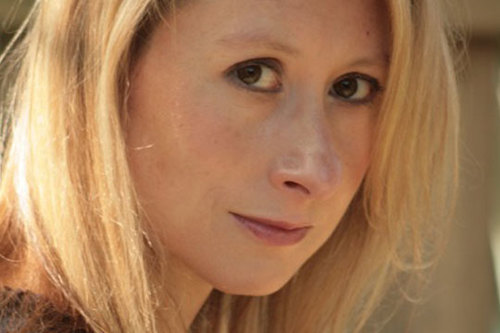 When I came into the Guelph MFA in 2007, mine was only the second cohort to begin the program. I was thirty-three years old—a little older than the average—had two small children at home, and had been writing and publishing poetry in magazines for about ten years, off-and-on. I applied and was admitted as a poet. Two years later I completed my thesis in poetry under the guidance of the estimable Dionne Brand. I tell you this because now, in 2015, I sometimes wonder if I'll ever write another poem.
When I came into the Guelph MFA in 2007, mine was only the second cohort to begin the program. I was thirty-three years old—a little older than the average—had two small children at home, and had been writing and publishing poetry in magazines for about ten years, off-and-on. I applied and was admitted as a poet. Two years later I completed my thesis in poetry under the guidance of the estimable Dionne Brand. I tell you this because now, in 2015, I sometimes wonder if I'll ever write another poem.
That's the exciting thing about those focused years. I walked out of the program with a new society of friends and colleagues, many of whom are my all-time favourite people to this day. I also walked out as a fiction writer. Part of the beauty of a two-year program is how it forces you to expand outside of what you know. While I initially signed up to take a creative non-fiction course in my second semester, on the strong recommendation of a new friend (and on a bit of a whim, let's face it) I switched over to Michael Winter's short fiction workshop at the last minute. Between that workshop and a summer mentorship, I put together half a manuscript's worth of short stories and sent them out for publication while I got down to the business of writing my poetry thesis. When the thesis was done, the stories I'd sent out had all been placed in magazines and I spent my post-MFA year tenderly juggling freelance money-jobs with real writing time—time I used to keep pushing at short fiction, until I had a whole collection's worth of stories ready to be seen.
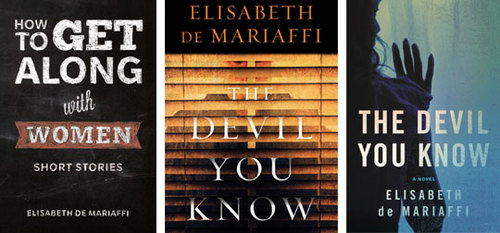 Writing a first novel felt very much like that big leap—poetry to fiction—all over again. A novel is nothing like a short story: it's tangly and full of strings. It's a mess. It feels like a mess until pretty much five minutes before you're done with it. I know this now, because my first novel, a literary thriller called The Devil You Know, has just been released. Since my time in Guelph's MFA, I've moved to the far edge of the continent, re-married, and worked and quit two full-time day-jobs. I'm back at work now as a writer again, tiptoeing into a new novel.
Writing a first novel felt very much like that big leap—poetry to fiction—all over again. A novel is nothing like a short story: it's tangly and full of strings. It's a mess. It feels like a mess until pretty much five minutes before you're done with it. I know this now, because my first novel, a literary thriller called The Devil You Know, has just been released. Since my time in Guelph's MFA, I've moved to the far edge of the continent, re-married, and worked and quit two full-time day-jobs. I'm back at work now as a writer again, tiptoeing into a new novel.
I wish I could tell you about it, but it's a mess.
Review: Emily M. Keeler on How to Get Along With Women in the National Post
Elisabeth de Mariaffi is the author of one brand new novel, The Devil You Know (HarperCollins, Canada; Simon & Schuster, USA 2015) as well as one book of short stories, the Giller-nominated How To Get Along With Women (Invisible Publishing, 2012). Her poetry and short fiction have been widely published in magazines across Canada. In 2013, her story “Kiss Me Like I’m the Last Man on Earth” was shortlisted for a National Magazine Award. Elisabeth now makes her home in St. John’s, Newfoundland, where she lives with the poet George Murray, their combined four children and a border collie—making them CanLit’s answer to the Brady Brunch.
[featured: spring 2015]
Matt Lennox (2009 cohort)
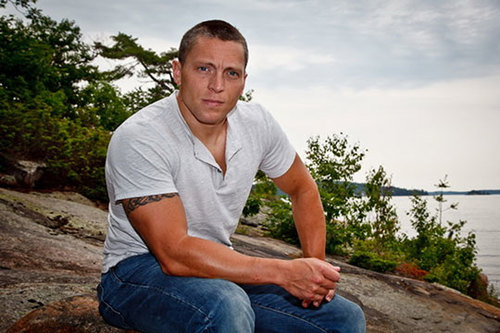 Initially I had some reservations about applying for an MFA in creative writing. I’d had some short stories published and had just signed a contract with Oberon to put together a collection. What, I thought (young grasshopper that I was), could I possibly learn in a master’s level programme? On the other hand, at the time, I was serving with the army in Afghanistan and I didn’t really have much of a plan for my life post-tour. So I put together the application package and took it over to the Canadian post office and sent it to the University of Guelph. A while later—I can’t remember how long—I received an email telling me I’d been accepted into the programme. As I read into the accompanying information, I started to get genuinely excited about it. The curriculum and the authors already attached to the MFA buoyed me through the last few weeks of my deployment.
Initially I had some reservations about applying for an MFA in creative writing. I’d had some short stories published and had just signed a contract with Oberon to put together a collection. What, I thought (young grasshopper that I was), could I possibly learn in a master’s level programme? On the other hand, at the time, I was serving with the army in Afghanistan and I didn’t really have much of a plan for my life post-tour. So I put together the application package and took it over to the Canadian post office and sent it to the University of Guelph. A while later—I can’t remember how long—I received an email telling me I’d been accepted into the programme. As I read into the accompanying information, I started to get genuinely excited about it. The curriculum and the authors already attached to the MFA buoyed me through the last few weeks of my deployment.
Without question, the programme was one of the best moves I’ve ever made. I knew that on the first day of the plenary session, and I’ve never doubted it since. One aspect of it was technical—having a chance to develop my craft under the mentorship of some of Canada’s finest writers, as well as alongside peers whose careers I’m excited to watch even now. But, for me, beyond the technical training was the wider dialogue the MFA introduced me to. Vibrant discussions ranging from gender issues to social justice to cultural identities to everything in between–a host of topics I’d never really thought about before, but are nevertheless vital components of the purposes literature must serve.
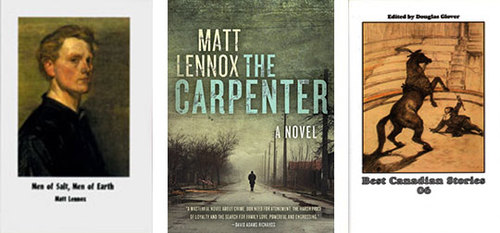 Now, I won’t get too lofty and serious here. While my peers, since our time together, have gone on to well-deserved acclaim as poets, playwrights, and memoirists, among others, I’m still a guy who primarily likes telling simple good-guy-bad-guy tales. Small town noir, I guess you could say. And I’m not always eager to consider my responsibilities as a writer—it’s a lot of work, after all, and it doesn’t always lead to comfortable places—but I can’t shake those responsibilities either. The University of Guelph MFA is directly responsible for that.
Now, I won’t get too lofty and serious here. While my peers, since our time together, have gone on to well-deserved acclaim as poets, playwrights, and memoirists, among others, I’m still a guy who primarily likes telling simple good-guy-bad-guy tales. Small town noir, I guess you could say. And I’m not always eager to consider my responsibilities as a writer—it’s a lot of work, after all, and it doesn’t always lead to comfortable places—but I can’t shake those responsibilities either. The University of Guelph MFA is directly responsible for that.
Memoir: The Informer, Toronto Life
Fiction: "A Speaking Engagement" in The Walrus
Q+A: The Rusty Toque
Review: Steven W. Beatty on The Carpenter in The National Post
Matt Lennox is the author of Men of Salt, Men of Earth and The Carpenter. His next novel, Knucklehead, is due out in May 2015. He has had short fiction and non-fiction published in The Walrus and Toronto Life. Outside of writing, Matt has served in the Canadian Army Reserves since 2002. His service included one tour of duty in Afghanistan from 2008-2009. Matt enjoys carpentry, amateur boxing, and travelling. In 2014 he married Natalie Jacyk, a Toronto-based lawyer.
[featured: fall 2014]
Jael Richardson (2008 cohort)
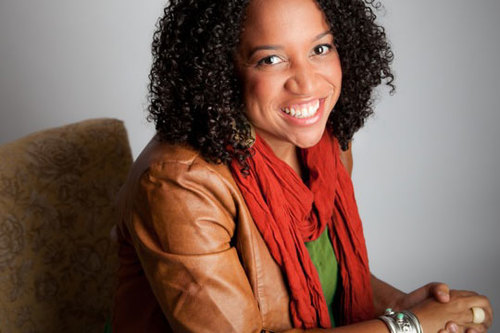 I didn’t plan on becoming a writer. When my siblings and I set out to create a book about my father’s life story, it was simply decided that I would do the actual writing. I was the artsy one, after all.
I didn’t plan on becoming a writer. When my siblings and I set out to create a book about my father’s life story, it was simply decided that I would do the actual writing. I was the artsy one, after all.
I applied to the MFA at the University of Guelph because I figured the workshops and the thesis would provide me with the deadlines and accountability I would need to finish an entire manuscript. But the program did far more than that. By taking three different genre workshops, I learned that I had more than one story inside of me.
The MFA plenary classes forced me to wrestle with important questions that continue to shape the stories I tell and the process I use to arrive at a finished product. But the most meaningful part of the program was the workshop discussions with peers, facilitated by talented established writers. I got hard questions and helpful advice. I also got positive feedback and encouraging advice that I still think about when my own self-doubt is overwhelming.
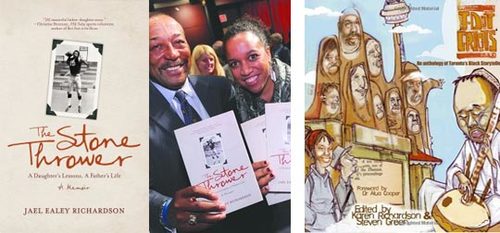 With my Masters degree, I was able to secure a position as a part-time professor at Humber College. I am currently working on a novel. I am also starting a new kind of project that will give other diverse stories a well deserved and much needed platform for promotion and discussion.
With my Masters degree, I was able to secure a position as a part-time professor at Humber College. I am currently working on a novel. I am also starting a new kind of project that will give other diverse stories a well deserved and much needed platform for promotion and discussion.
Article: The Stone Thrower in Quill and Quire
Review: Lawrence Hill on The Stone Thrower in The National Post
Q+A: on her novel-in-progress for the Passing the Baton Blog Tour
Jael Richardson is the author of the memoir The Stone Thrower: A Daughter’s Lesson, a Father’s Life; a children’s picture book of the same name is due for release in February 2016. Richardson recently served as one of the Toronto District School Board’s Writer-In-Residence and continues to speak in schools about the challenges and joys of writing, and about writing diverse stories as a Canadian woman of colour. She received a My People Award as a new writer of merit in the African Canadian community for her work on The Stone Thrower. Excerpts from her first play my upside down black face are published in the anthology T-Dot Griots: An Anthology of Toronto’s Black Storytellers. Richardson currently teaches at Humber College and is working on plans for a literary festival that celebrates diversity.
[featured: summer 2014]
Laurie D Graham (2008 cohort)
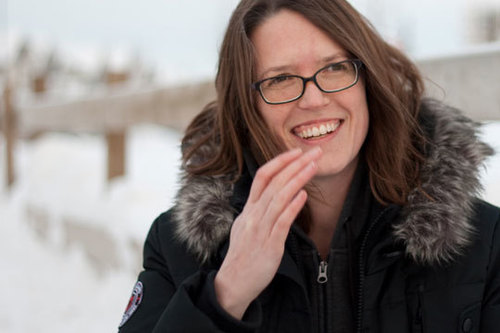 I landed two jobs (to my shock) after completing my MFA: one at Humber College and one at Brick magazine. My life has since become truly three-pronged—writing, editing, teaching—and I see this as a happy and rather direct outcome of completing a Master’s degree. To sit on various sides of a piece of writing, to have various roles in bringing a piece of writing to completion or publication, is a true education, and that education started in the workshop environment. I chose to pursue a Master’s degree for the simple reason that it would give me time to write, and I chose the Guelph program because of its faculty, but I came away with a much more broad set of experiences and knowledges than I could have expected.
I landed two jobs (to my shock) after completing my MFA: one at Humber College and one at Brick magazine. My life has since become truly three-pronged—writing, editing, teaching—and I see this as a happy and rather direct outcome of completing a Master’s degree. To sit on various sides of a piece of writing, to have various roles in bringing a piece of writing to completion or publication, is a true education, and that education started in the workshop environment. I chose to pursue a Master’s degree for the simple reason that it would give me time to write, and I chose the Guelph program because of its faculty, but I came away with a much more broad set of experiences and knowledges than I could have expected.
One thing that differentiates the Guelph MFA from other programs is its summer mentorship. I produced an enormous amount of work in those few summer months, more than I thought I was capable of, and I came away from my two years in the program with a poetry manuscript, two-thirds of a novel, and ideas for further projects. Not only did those two years show my work a way forward, but they helped solidify a writing practice.
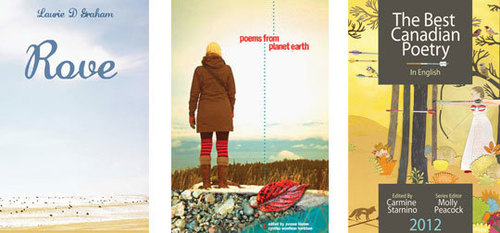 Profile: Open Book Toronto
Profile: Open Book Toronto
Review: of Lisa Moore's Caught for the Malahat Review
Interview: Zinio - on the editorial process at Brick
Poem: on Sachiko Murakami's Project Rebuild website
Laurie D Graham is a writer, a book reviewer, an instructor at Humber College, and an editor of Brick magazine. She is a regular reviewer for Brick, The Malahat Review, and The Fiddlehead, and she has had poems, short stories, and essays published in journals across the country, as well as in the anthologies Best Canadian Poetry 2012, A Crystal through Which Love Passes: Glosas for P.K. Page, and Poems from Planet Earth. Rove is her first book of poetry, published by Regina’s Hagios Press. Prior to receiving an MFA from the University of Guelph, she received a BFA in writing from the University of Victoria and a BA in English from the University of Alberta. Laurie grew up in the suburbs of Edmonton and now resides in London, Ontario.
[featured: spring 2014]
Sandy Pool (2006 cohort)
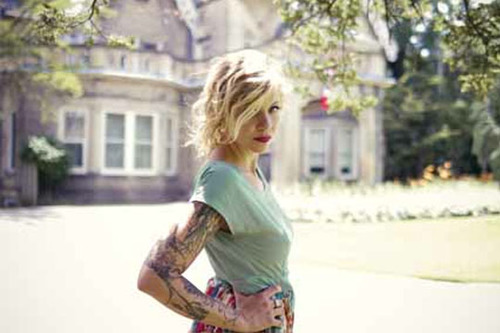 When I was accepted into the MFA program at Guelph, I truly felt like I’d received a golden ticket. The opportunity to write solidly for two years was such a gift. When I look back on it now, I realize that I produced a great deal of work in that short period. The MFA was fundamental to my becoming a professional writer. The high quality of instruction I received, as well as the excellent peer feedback, provided me with the skill set and confidence to put out my first book of poetry, and begin what would later become my second collection.
When I was accepted into the MFA program at Guelph, I truly felt like I’d received a golden ticket. The opportunity to write solidly for two years was such a gift. When I look back on it now, I realize that I produced a great deal of work in that short period. The MFA was fundamental to my becoming a professional writer. The high quality of instruction I received, as well as the excellent peer feedback, provided me with the skill set and confidence to put out my first book of poetry, and begin what would later become my second collection.
Since then, I’ve gone on to complete PhD in English, and have been teaching at various academic institutions across the country. I really believe that I could not have accomplished these goals without first completing the MFA in Creative Writing at Guelph. I was lucky to be mentored by such talented writers, and I’m confident that the program will continue to provide students with the high caliber of instruction and pedagogical initiatives I received while studying there. The program not only provided me with a much-needed community of writers to engage with, but was an excellent overall introduction to the writing life.
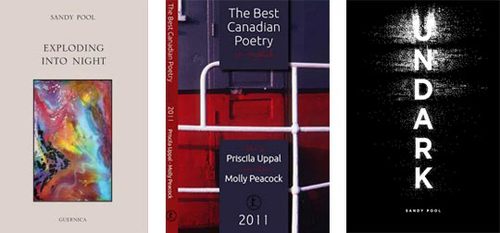
Interview: The Toronto Quarterly
Interview: Open Book Toronto
Discussion (with fellow Trillium finalist): The National Post
Sandy Pool is a writer, editor and Creative Writing instructor. Sandy holds a degree in Theatre Performance and English from the University of Toronto, as well as a Masters of Fine Arts in Creative Writing from the University Guelph. Currently, she is a holder of the prestigious Killam scholarship in poetics at the University of Calgary, where she is completing her PhD. Sandy has been published in various literary journals and was most recently anthologized in The Best Canadian Poems in 2011, published by Tightrope Books. Her first book Exploding Into Night, published by Guernica Editions, was long-listed for the 2010 re-lit award and short-listed for the 2010 Governor General’s Award for poetry. Undark: An Oratorio was published this fall with Nightwood Editions and was recently short-listed for an Alberta Book Award for Poetry and the Trillium Book Award for Poetry.
[featured: fall 2013]